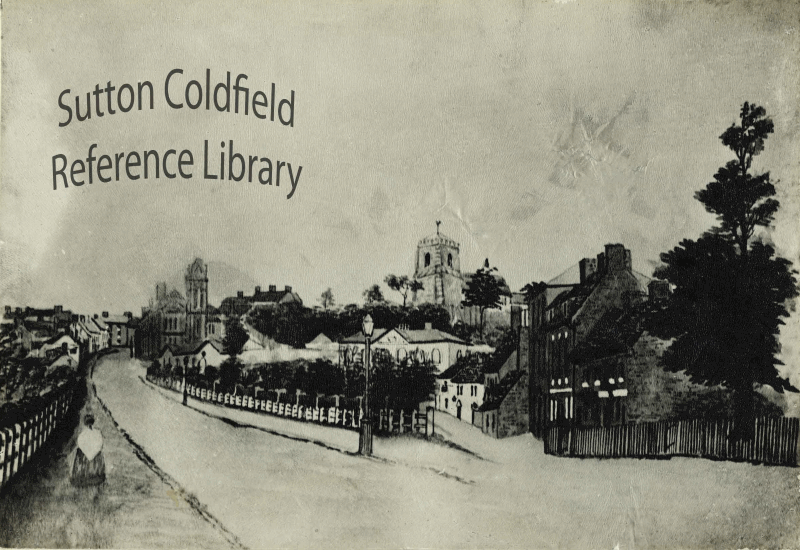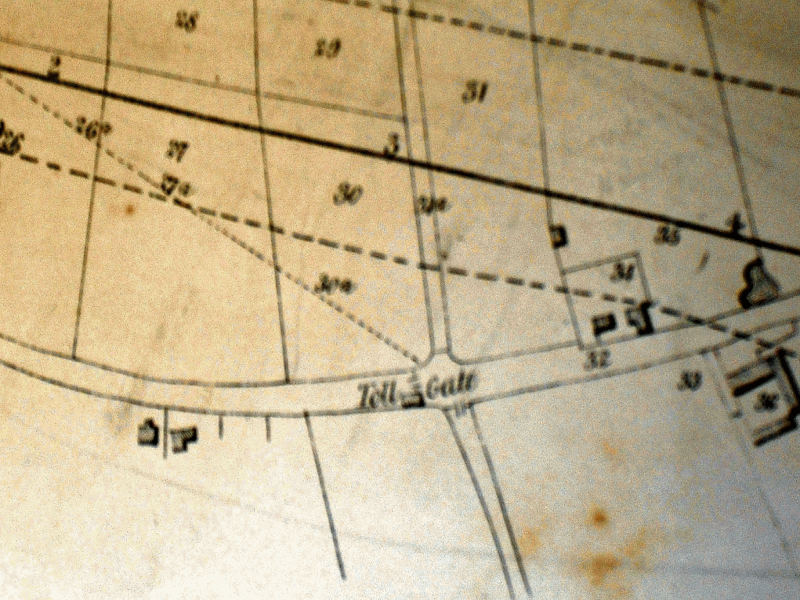Travel on the roads in the nineteenth century was not free - every so often you would come to a toll gate and have to pay a fee to go through. There was a toll gate in Sutton, in Lichfield Road next to the junction with Tamworth Road. The toll house, a few yards in front of what is now Sutton Court, jutted out into the road. The fees were paid to the Turnpike Trust, which had a duty to maintain the roads in good order.
The Birmingham to Watford Gap Turnpike Trust was responsible for Lichfield Road from Gosta Green to Watford Gap, Tamworth Road as far as Bassetts Pole, and Kingsbury Road. The Trust had been set up by Act of Parliament in 1826 with 104 trustees, with permission to charge tolls ranging from sixpence for each horse drawing a carriage to three-halfpence for a packhorse, a penny a head was charged for cattle, while sheep went through for a halfpenny each.
Tolls collected in 1837 amounted to £2095. 13s. 8d; this year saw the opening of the Grand Junction Railway, the first trunk railway in the world, linking Birmingham with Liverpool and Manchester. Railways took away most of the long-distance traffic, and tolls never again exceeded £2,000. Each Year the trustees invited agents to bid for the tolls - the agent would pay the trustees a sum of money in return for the right to operate the toll gate and collect the fees. In 1860 the trustees, meeting at the Three Tuns, approved a bid of £1850. In 1865, when they met at the prestigious new Royal Hotel in King Edwards Square, the bid was only £1450 - the Sutton Coldfield Branch Railway, opened in 1862, had taken some traffic off the roads.
Road works cost the Turnpike Trust nearly £1600 in 1837, including some major improvements, while the bill in 1870 was £860, which included the cost of some street lights. Lamps, some of the first gas lighting in Sutton, had been installed in 1860, two at the toll gate and two on the Parade, by the Turnpike Trust. By 1870 turnpike roads with their toll gates came to be seen as a nuisance as more and more people wanted to travel, and the roads in Sutton were disturnpiked in 1872. Sutton ratepayers objected, saying that maintenance of the roads would now be a charge on the rates instead of being paid for by tolls on “traders, carriers and market gardeners” passing through the town, and “hundreds of pleasure-seekers going to Sutton Park.”

